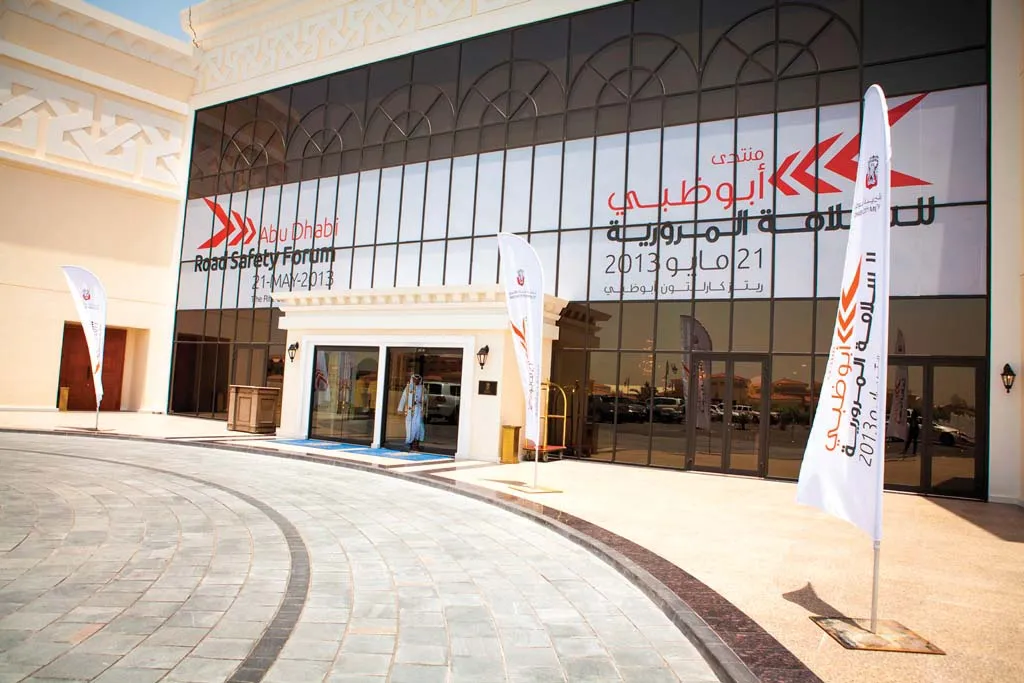Internationally renowned road safety expert Mike Dreznes gives a personal comment on the World Day of Remembrance for Road Traffic Victims
The IRF associates itself to the World Day of Remembrance for Road Traffic Victims commemorated on the third Sunday of November each year. This is to remember the many millions killed and injured on the world’s roads, together with their families, friends and many others who are also affected.
Travelling a significant amount of time around the globe every year, I s
January 27, 2017
Read time: 3 mins

RSSInternationally renowned road safety expert Mike Dreznes gives a personal comment on the World Day of Remembrance for Road Traffic Victims
The3918 IRF Washington associates itself to the World Day of Remembrance for Road Traffic Victims commemorated on the third Sunday of November each year. This is to remember the many millions killed and injured on the world’s roads, together with their families, friends and many others who are also affected.
Travelling a significant amount of time around the globe every year, I sometimes get tired. However, when I start to drag and I am thinking that I might not want to make a road safety presentation or conduct a road safety training programme, I think about my 23 year-old cousin.
My cousin was sitting in the southbound lane at a red light in Cleveland, Ohio when a drunk driver being chased by the police westbound hit a turned down concrete end in the median. The drunk driver’s car flew in the air and landed on my cousin’s car, killing him instantly.
At those times when I want to give up, I think about my cousin and the pain my family felt due to his death. I remind myself that my efforts to make the roads safer might help even just one family avoid the pain my family experienced, and this gives me the energy and adrenaline to go on.
This energy is shared by all the partners of the United Nations Road Safety Collaboration (UNRSC) and the members of Pillar 2 “Safer Roads & Mobility” which I have the honour to co-chair. UNRSC met in Geneva, Switzerland at the World Health Organisation (WHO). Eighty individuals from around the world representing the five Pillars of the UNRSC discussed a variety of road safety topics with the ultimate goal to implement strategy to reduce global fatalities by 50% by 2020.
On this occasion, WHO also launched a new programme titled “Save LIVES” (Speed Management, Leadership, Infrastructure Safety, Vehicle Safety, Enforcement of Traffic Laws, and Survival). The group discussed plans for the Fourth UN Global Safety Week and its focus on Speed Management. Proper travelling speeds could have a significant effect on road safety and they will be a major focus for the IRF’s efforts throughout 2017.
The
Travelling a significant amount of time around the globe every year, I sometimes get tired. However, when I start to drag and I am thinking that I might not want to make a road safety presentation or conduct a road safety training programme, I think about my 23 year-old cousin.
My cousin was sitting in the southbound lane at a red light in Cleveland, Ohio when a drunk driver being chased by the police westbound hit a turned down concrete end in the median. The drunk driver’s car flew in the air and landed on my cousin’s car, killing him instantly.
At those times when I want to give up, I think about my cousin and the pain my family felt due to his death. I remind myself that my efforts to make the roads safer might help even just one family avoid the pain my family experienced, and this gives me the energy and adrenaline to go on.
This energy is shared by all the partners of the United Nations Road Safety Collaboration (UNRSC) and the members of Pillar 2 “Safer Roads & Mobility” which I have the honour to co-chair. UNRSC met in Geneva, Switzerland at the World Health Organisation (WHO). Eighty individuals from around the world representing the five Pillars of the UNRSC discussed a variety of road safety topics with the ultimate goal to implement strategy to reduce global fatalities by 50% by 2020.
On this occasion, WHO also launched a new programme titled “Save LIVES” (Speed Management, Leadership, Infrastructure Safety, Vehicle Safety, Enforcement of Traffic Laws, and Survival). The group discussed plans for the Fourth UN Global Safety Week and its focus on Speed Management. Proper travelling speeds could have a significant effect on road safety and they will be a major focus for the IRF’s efforts throughout 2017.








